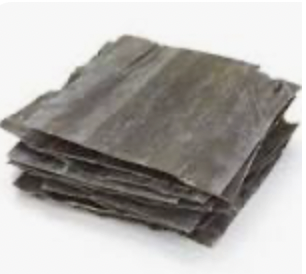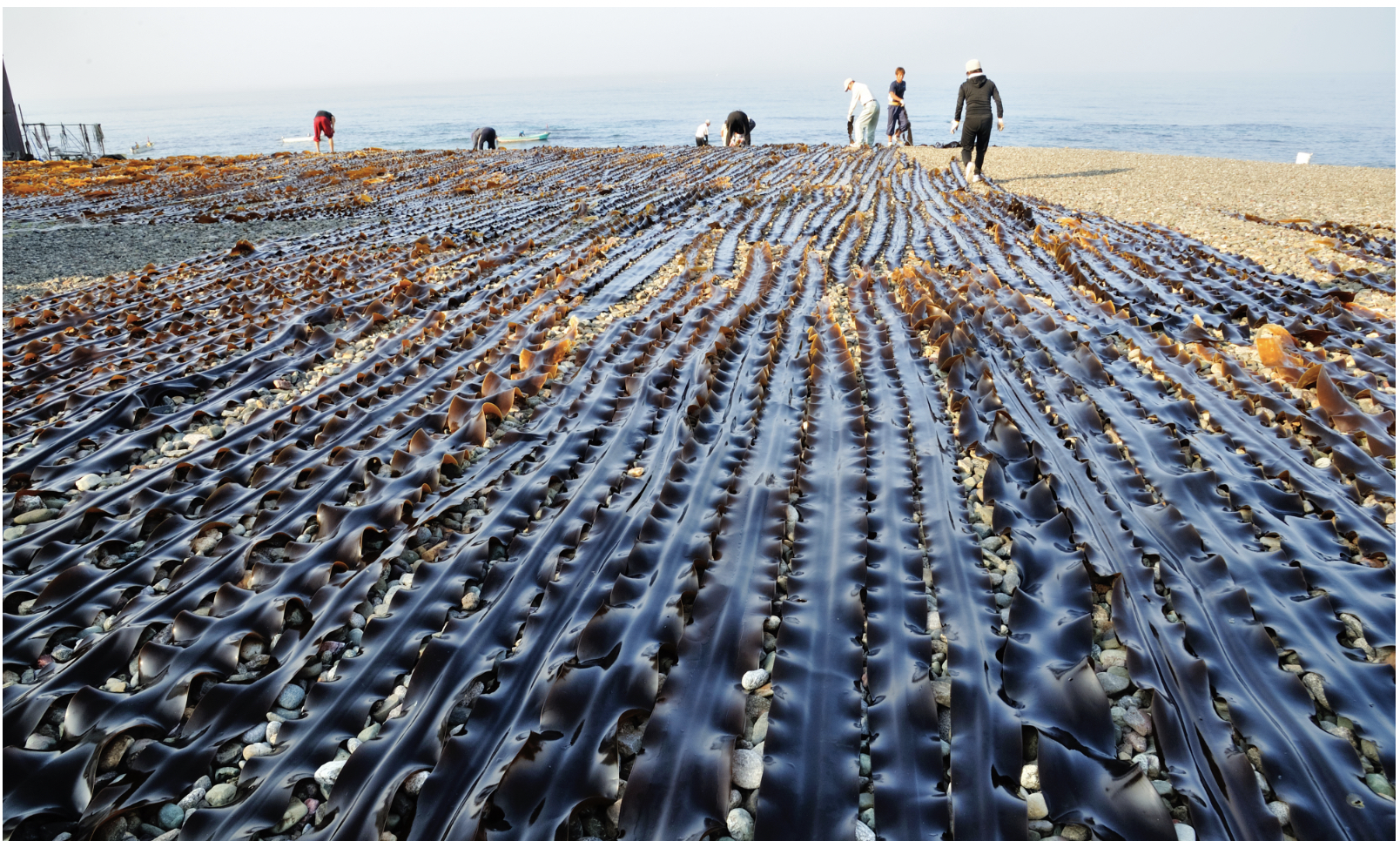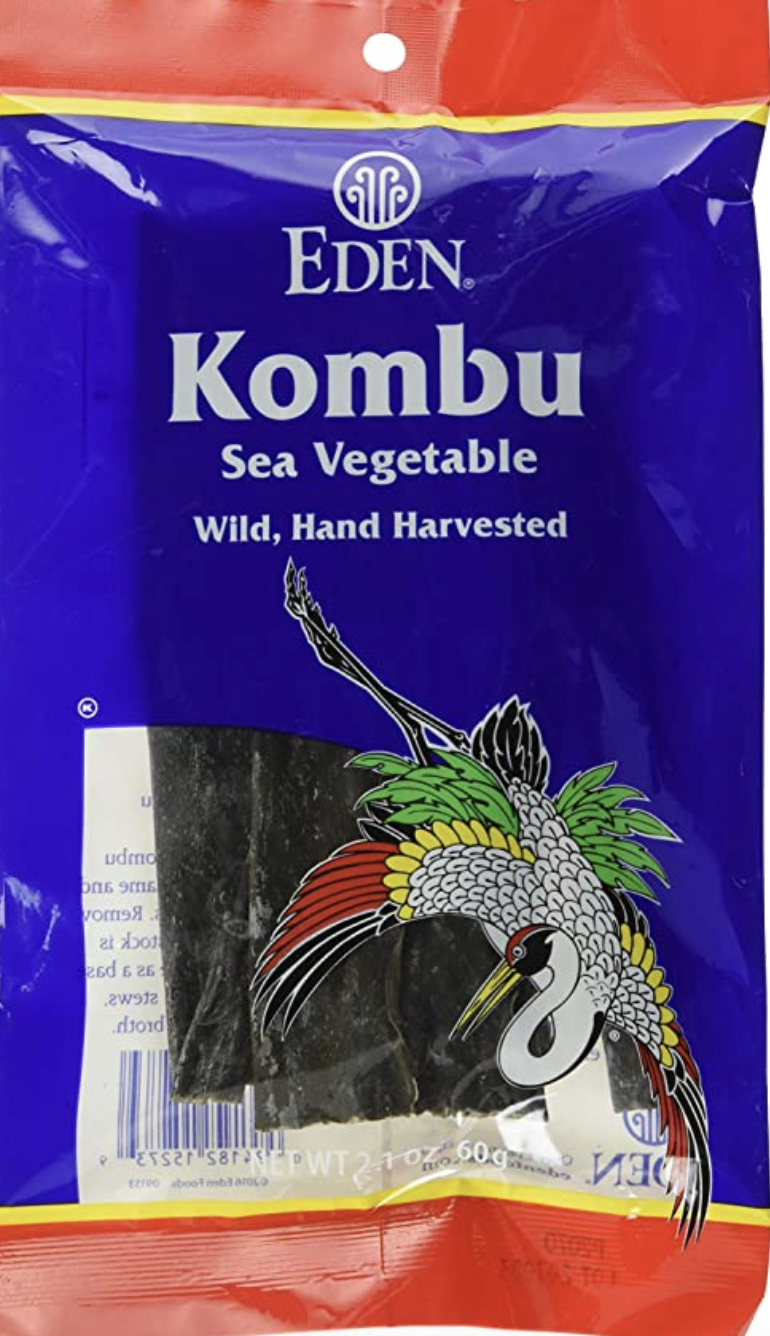Spotlight: Kombu – The Secret in the Sauce
By: Chef David
The sea-vegetable kombu, also known as kelp, gives Japanese cooking its savory umami flavor. Kombu has been a staple in East Asian cuisine for centuries, a flavor enhancer. It works well in Western dishes too, adding richness in flavor, while simultaneously the amino acids break down beans making them easier to digest. Eden Foods dried kosher kombu is certified by OK. Try it and add a new flavor dimension to your cooking.
Natural, Sustainable, and Abundant
Kombu is dark greenish-brown wide leafy seaweed which grows in waters off the southeastern coast of Hokkaido, Japan. Harvesting takes place from July to September. The kombu is hand-harvested using long poles with knives attached that cut the leaves from the root, leaving the root intact. As the leaves float to the surface they are gathered into boats and taken ashore to be washed, folded, and sun-dried for four to five hours.
It takes two years for the kombu to be ready for harvesting. The leaves produced during the first year are thin, but the second-year ma-kombu has a superior texture and taste. Dried strips and flakes are usually good almost indefinitely, though their flavor is usually best within about a year of dehydration
Beware, not all kombu is alike, some commercial grades are cultivated artificially or simply gathered from the beach after washing ashore. While others are sprayed with chemicals to make the kombu more tender.
Health Benefits
Kombu is a good source of dietary fiber. A serving contains 10 calories and provides 4% daily dietary fiber, although in most recipes the kombu is removed before serving. One serving contains 90 mg sodium, 2% DV calcium and iron, and 4% potassium. Kombu is a good source of iodine, folate, and vitamin K.
The amino acids in kombu help break down the heavy starches in beans making them easier to digest.
Eden Foods
Eden Foods is a natural foods company that began in southern Michigan in 1968. It began as a cooperative where members searched for farmers to grow food using organic methods. Then it morphed into a natural food store offering whole grains, beans, soy foods, and cereals, later expanding to include a cafeteria, bakery, and books. Eden Foods was ahead of its time, establishing a place to find natural, organic, and macrobiotic food. In 1972 they opened their first warehouse and established relations with artisan Japanese growers.
Eden Foods now has an extensive line of kosher foods, with over 340 products certified by the OK, available online. Eden Foods uses kombu in their canned beans instead of adding salt.
The Kombu Debate
Kombu has a natural white powder (called mannitol) formed from starches that evaporated from the kelp during the drying process. Some cooks suggest lightly wiping the leaves to preserve the flavor. Others recommend rinsing or soaking the dried kombu.
Expand Your Umami
I continue to explore the versatility of using kombu to amplify the natural flavors. In combination with Shiitake mushrooms, the umami accentuates and expands natural savory flavors in a subtle but noticeable way, bringing with it health benefits. I began exploring Eden Foods, in a quest to expand my mastery of Asian cooking and quickly learned that these flavor profiles are universal.
Cooking with Kombu
Soup Stock Recipe (from Eden Kombu)
- Place a strip in 4 cups of water and bring to a boil, reduce to a simmer
- Remove the kombu after 4 to 5 minutes and discard or set it aside for use in other dishes
The stock is ready to use as a base for making soup or stews.
TIP: Adding a few flakes of kombu to boiling rice or meat dishes provides a quick, easy flavor boost. A small piece of kombu added to dried beans helps to tenderize them as they cook.
Mushroom Udon Noodle Bowl (adapted from The New York Times)
Ingredients
Broth
-
- 3 large scallions
- 4 ounces kombu
- 1 inch of ginger crushed
- 2 cloves garlic crushed
- 1/2 cup dried shiitake mushrooms (save stems from the shiitakes for the soup)
- Salt to taste
Soup
-
- 1 pound noodles (they use udon, I prefer ramen)
- 1 cup onion diced
- 8 ounces shiitake mushrooms sliced stems removed for broth
- 2 cloves minced garlic
- 1 teaspoon minced ginger
- 1/4 cup dry white wine or dry sherry or mirin
- 1/2 teaspoon sesame oil
- 2 tablespoons soy sauce
- 2 cups bok choy or other green leafy vegetables spinach works well
- 1/2 cup miso (red or white)
- 1 cup soft tofu cut small
- scallions for garnish
- sesame seeds for garnish
Method
- Bring 8 cups of water to a boil. Add all the broth ingredients. Simmer for about 20 minutes strain, and reserve broth.
- In a separate pot, cook noodles to al dente (follow the instructions on the package).
- In a large pot use oil and cook the onions and shiitake until softened 2 to 3 minutes over medium-high heat. Add garlic, ginger, wine, sesame oil, and soy sauce cook for 1 minute. Add reserved broth raise heat to high and bring to a simmer.
- Add the greens and noodles. Simmer until fully cooked.
- Stir in miso and tofu and turn off the heat.
- Top with scallions and sesame seeds and serve.








